A man of few words who had magic thoroughbred dust at the tips of his fingers
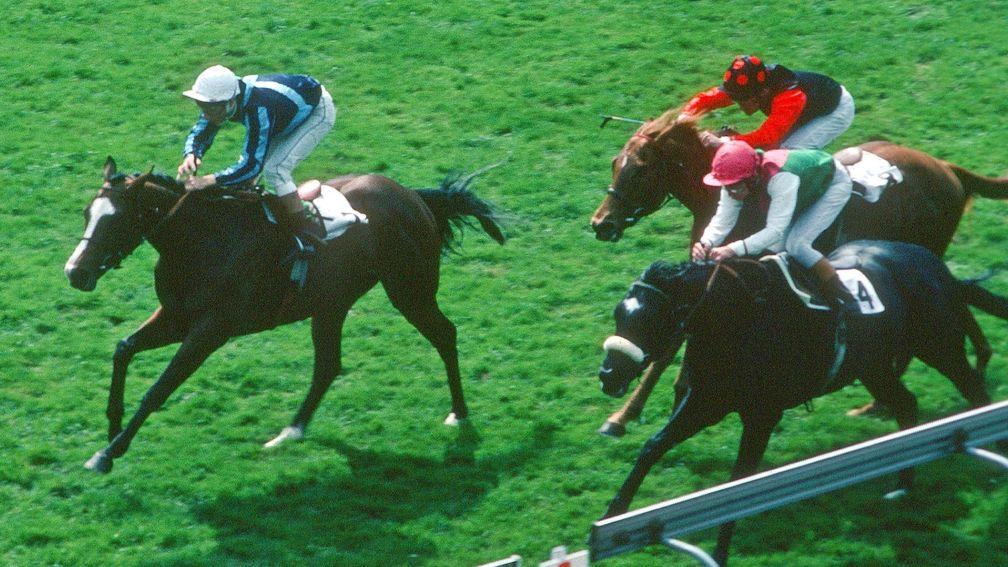
Prince Khalid Abdullah epitomised better than anyone the maxim that horses should speak for themselves. No owner spoke fewer words than the Saudi Arabian prince, whose totem racehorse, Frankel, could not have spoken more eloquently on his behalf.
The vast majority of racing fans nominate Abdullah's stupendous champion as the best racehorse they had seen – and many of those had previously declared they would never again see the like of Dancing Brave, who carried Abdullah’s silks with rare distinction in 1986.
The man who entered the sport by his inaugural yearling purchases in 1977 has left it demonstrably the richer, his legacy enshrined in Juddmonte Farms, the breeding concern that made Abdullah a serial winner of awards defining excellence.
Khalid Abdullah, legendary owner-breeder of Frankel, dies aged 83
Abdullah's homebreds landed all five British Classics in a ten-year spell from 1990. The full set in France was completed five years later but Juddmonte Farms reached its apogee in 2003, when it was the leading owner in both Britain and France while simultaneously landing Eclipse Awards in the US as top owner and top breeder.
Such riches prompted informed commentators to describe Juddmonte Farms as the model operation. It is one without peer, its achievements rendered more remarkable by the fact it started from scratch. A series of astute, mostly private purchases of fillies and broodmares established the platform from which the majority of its contemporary horses descend. Very few yearling purchases have been made in the last 30 years; they were simply not necessary.
Abdullah latterly spoke passionately of his breeding enterprise, describing it as his one and only hobby. He derived immense pleasure from walking around his farms in Britain, Ireland and the US to assess his young stock. Not one for the minutiae of racing, he loved the thoroughbred aesthetic.
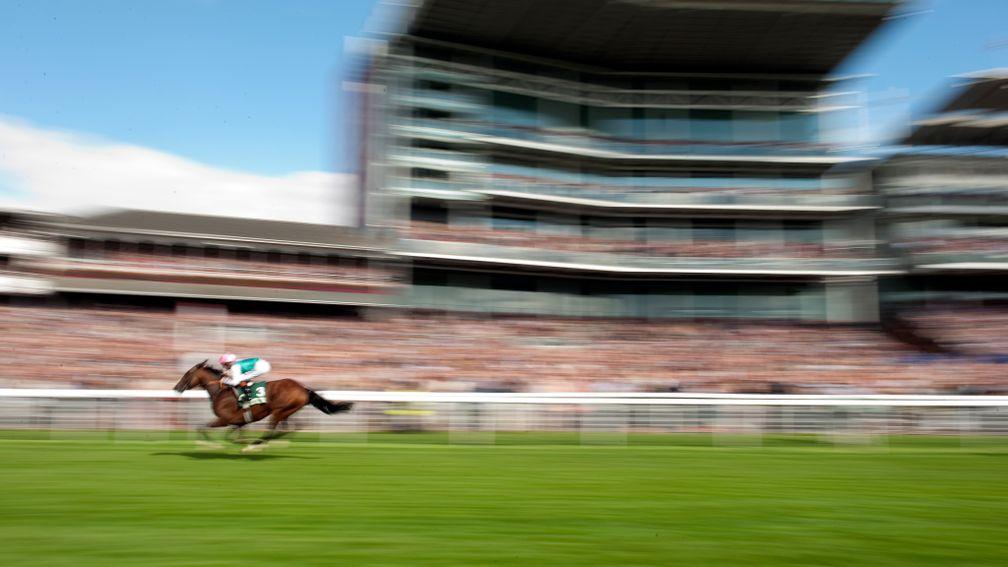
In idle moments he would trawl through the pages of his stud book, which was always to hand, musing on mating plans he would authorise after considerable dialogue with his team of managers and advisers. He appreciated the expertise of his coterie’s input to the extent he rarely spurned their advice.
Abdullah’s development of the Juddmonte brand saw the operation expand significantly from his original purchase of Cayton Park Stud, in Berkshire, in 1982.
As his broodmare band grew he took steps to ensure there was sufficient pasture for their produce. In the end, a mature Juddmonte Farms embraced four substantial properties in Britain, two in Ireland and the 2,500-acre Juddmonte Farms, south of Lexington, in Kentucky.
The British and Irish side of the venture illustrated Abdullah’s commitment to sanction farm purchases that would enhance thoroughbred production. That process evolved into a well-trodden path over the years.
Young foals at foot were initially stationed and weaned at Banstead Manor Stud, just outside Newmarket, which was also home to Abdullah’s stallions in Europe. From there the weanlings moved on to Abdullah’s Estcourt Estate in Gloucestershire, where the quality of the land in summer aided their development.
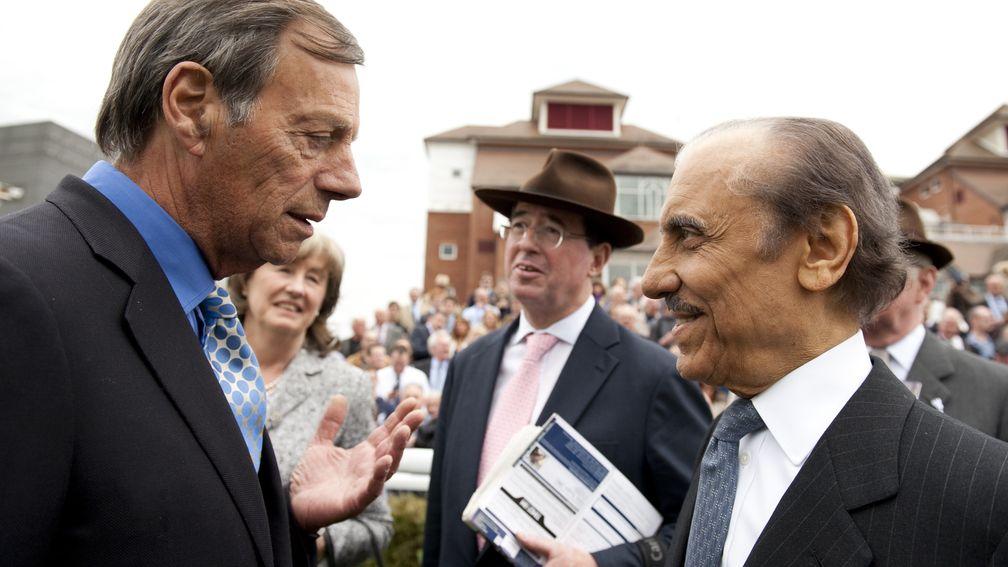
In November they were shipped over to New Abbey Stud, in Kildare, which offered an optimum winter/spring environment for yearlings that would eventually transfer to Ferrans Stud, in Meath, to be broken and pre-trained.
Abdullah could never have envisaged he would oversee such a labyrinth when he embraced racehorse ownership in 1977. He actually developed an interest in racing back in 1956, when he accompanied an elder relative to Paris. He enjoyed his visits to Longchamp so much that he resolved one day to properly engage with the sport.
He would always have the means, although he would make his own fortune. His father, Abdullah bin Abdul Rahman, was a favoured brother and key adviser of King Abdul Aziz, the founding king of Saudi Arabia.
Since Abdul Aziz died in 1953 the country has been ruled in succession by six of his sons, the current one being King Salman. And Khalid Abdullah, who was a cousin to those six kings, consolidated his status within the royal matrix when he married Al Jawhara bint Abdul Aziz, a daughter of King Abdul Aziz and sister of his ruling sons.
Abdullah studied history in the US before returning to Saudi Arabia, where he established Mawarid Holding in 1968. As with his breeding operation, Mawarid has evolved into a diverse and successful company that played an important role in Saudi Arabia’s development. When business brought Abdullah to Britain in 1977, the year after his father died, he decided to enact the pledge he made to himself in Paris more than two decades earlier.
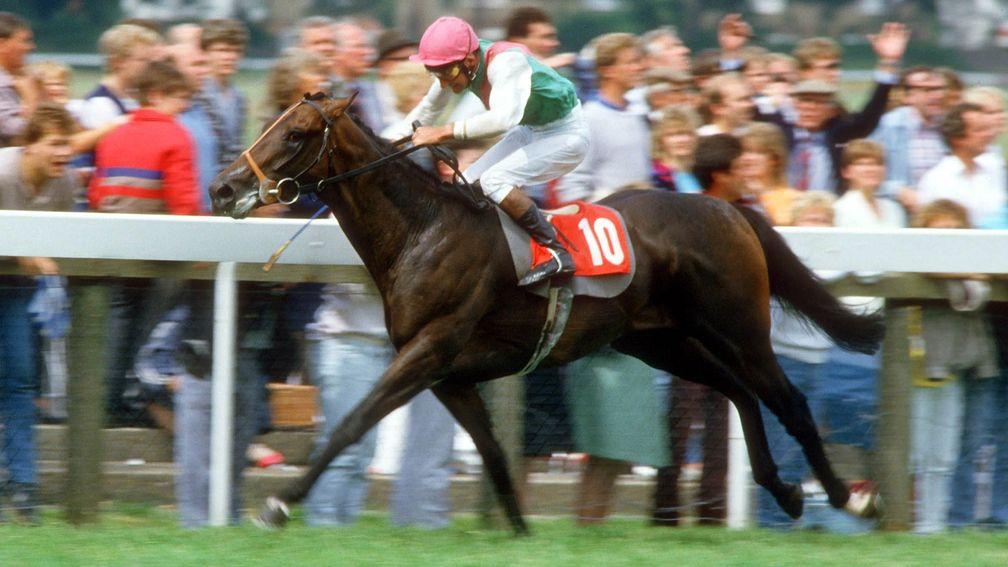
It was a combination of good judgement and good fortune that saw Abdullah position former trainer Humphrey Cottrill as his right-hand man. Cottrill duly bought four modestly priced yearlings on behalf of his new patron and recommended they be trained by Jeremy Tree at Beckhampton. This three-way axis marked the start of a professionally rewarding relationship.
From those humble beginnings Abdullah chose to raise the bar significantly. The following year he laid out a record 264,000gns for a yearling he named Sand Hawk, and five years later, 1.4 million guineas on another he would name Convention. When both proved expensive failures, Abdullah resolved to pursue success from another direction.
Although he continued to buy yearlings at public auction when Cottrill retired in 1982 – to be replaced as racing manager by Grant Pritchard-Gordon, and by Philip Mitchell as general manager of European operations – his emphasis by then had switched to buying fillies in training and select packages of broodmares. They would reap handsome dividends, but not before a yearling colt bought by Cottrill for $225,000 at Keeneland came up trumps.
That was Known Fact, who became the first Arab-owned horse to win a British Classic when he was awarded the 2,000 Guineas on Nureyev’s disqualification in 1980. A noted bon viveur, Tree was at a loss to know how to celebrate at Newmarket with his teetotal patron. He eventually settled on tea served in polystyrene cups from a van, whose owner was tipped extravagantly in cash by a beaming prince.
Throughout the 1980s Abdullah enjoyed success with his yearling purchases, among them the 1985 Coronation Cup and Prix de l’Arc de Triomphe winner Rainbow Quest. He also savoured notable triumphs in the US with older horses he sent to the west coast from Europe, among them Grade 1 winners Alphabatim and Hatim, who were trained by John Gosden.
Until Frankel the best horse Abdullah owned was unquestionably Dancing Brave. Bought as a yearling by James Delahooke for $200,000 and trained by Guy Harwood, Dancing Brave’s big-race triumphs in 1986 numbered the 2,000 Guineas, Eclipse, King George VI and Queen Elizabeth Stakes and Prix de l’Arc de Triomphe.
Yet the colt will be remembered above all for his defeat in that year’s Derby. Asked to make up a huge amount of ground by jockey Greville Starkey, he failed by a fast-diminishing half-length to overhaul Shahrastani. It was not long before Abdullah replaced Starkey aboard the son of Lyphard with Pat Eddery, whom he would subsequently retain.
As the 1980s drew to a close the first of Abdullah’s broodmare purchases started making an impact. He achieved a milestone in 1988 when Warning became his first homebred Group 1 winner in the Sussex Stakes.
It was an appropriate triumph, since Warning epitomised the organic nature of Juddmonte Farms. Indeed, each of the eight resident stallions at Banstead Manor traces back to one of those foundation mares: Bated Breath (Monroe), Cacique, Champs Elysees and Dansili (all Sookera), Frankel (Rockfest), and Kingman and Oasis Dream (both Bahamian).
Warning was by Abdullah’s 2,000 Guineas winner Known Fact out of Slightly Dangerous, whom Abdullah acquired in 1982 a month before she ran second in the Oaks. An impeccably bred filly, Slightly Dangerous would achieve even more in the paddocks.
As well as Warning, she produced Abdullah’s second Derby winner Commander In Chief in 1992 (the first, Quest For Fame in 1990, was by Rainbow Quest), Ribblesdale Stakes heroine Yashmak and other black-type horses in Dushyantor, Deploy, Jibe, Shirley Valentine and Totality. It was a sign of things to come.
Everywhere Abdullah turned, he struck equine gold. In 1983 he acquired stock from the estate of the late US owner/breeder Jock Whitney. Among the horses was Rockfest, subsequently third dam of Frankel.
Another broodmare purchase at that time would become emblematic of a breeding operation that would set new benchmarks. Sookera, who won the 1977 Cheveley Park Stakes for Robert Sangster, left a unique imprint. Her granddaughter Hasili bred five individual Group or Grade 1 winners and two other Group/Graded stakes winners who were placed in Group 1 company – in particular Dansili, who is among Europe’s foremost sires from his base at Abdullah’s Banstead Manor Stud.
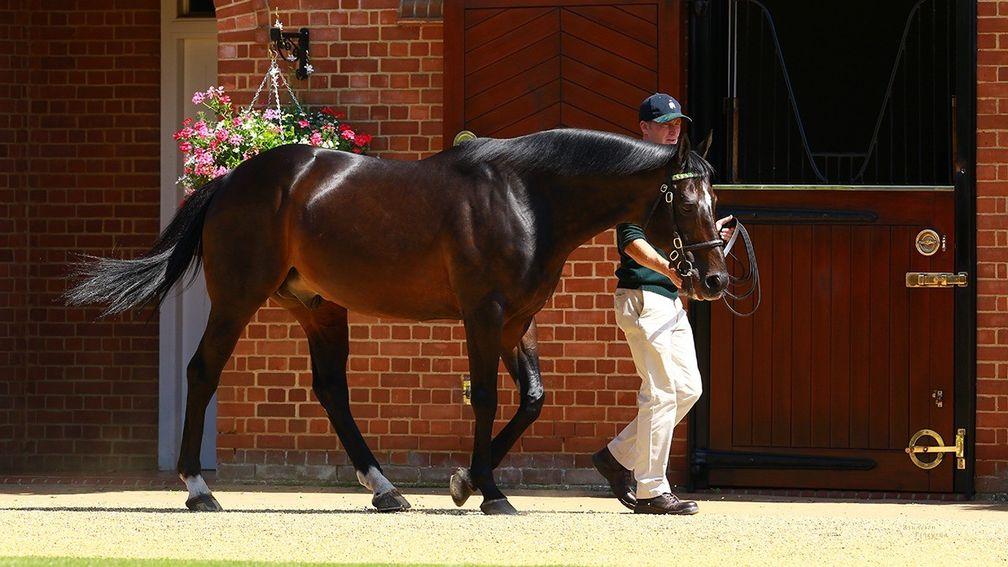
Two of Hasili’s Group 1-winning progeny, Banks Hill and Intercontinental, won Eclipse Awards for Abdullah after their victories in the Breeders’ Cup Filly & Mare Turf in 2001 and 2005 respectively.
All told, Abdullah won 16 Eclipse Awards in the US. In addition to Banks Hill and Intercontinental, Ryafan, Wandesta, Close Hatches and Arrogate prevailed in equine categories, while Juddmonte Farms triumphed four times as top owner and five times as top breeder.
Perhaps the most successful season for Abdullah came in 2003. Horses bred by Juddmonte won 18 Group 1 races around the world in his white, green and pink livery – and one more in other silks after Continent, who was sold when in training, landed the Prix de l’Abbaye.
But the most rewarding horse for him personally was Frankel, whose 14-race unbeaten career represented near-unparalleled achievement. There was an equally poignant human side to the Frankel story: his trainer Henry Cecil, who was suffering from stomach cancer, died eight months after Frankel closed out his unbeaten career in the Champion Stakes in October 2012.
Frankel was named after Abdullah’s US trainer Bobby Frankel, who lost his own battle with leukaemia in 2009. Many of the trainer’s best wins were gained for Abdullah, notably Empire Maker’s Belmont Stakes triumph in 2003. It says much about Abdullah that he funded state-of-the-art medical treatment for both Cecil and Frankel to help their fight against illness.
Following Bobby Frankel’s death, east coast trainer Bill Mott took over Abdullah’s US horses until, in 2012, Abdullah returned to the west coast by sending Bob Baffert four or five yearlings annually. By this time Abdullah had branched out into Ireland, sending Dermot Weld ten yearlings annually, although his racing interests in Europe were largely centred in Britain and France.
In the last five years of his life Abdullah owned two great champions, Arrogate and Enable. Arrogate is the only horse since Frankel to be the overall world champion twice on official ratings, and he achieved that distinction with three consecutive hugely valuable victories in late 2016 and early 2017.
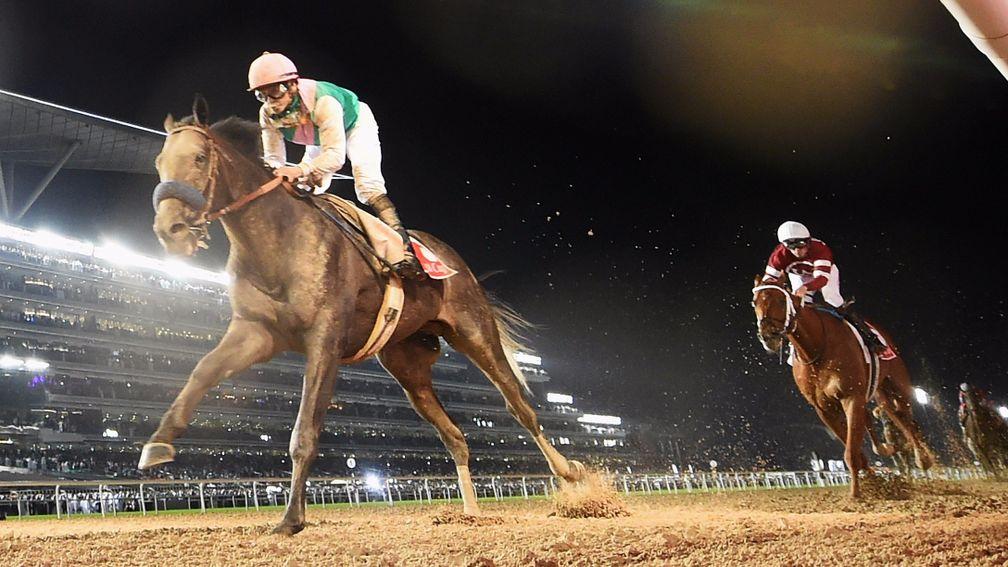
The Baffert-trained grey confirmed himself a champion as a three-year-old in the $6m Breeders' Cup Classic, and continued his purple patch in the new year by trouncing his rivals in the inaugural $12m Pegasus World Cup at Gulfstream Park and outclassing Gun Runner in the $10m Dubai World Cup.
Enable achieved immortal fame by winning the Prix de l'Arc de Triomphe in 2017 and 2018, and becoming the first horse to win the King George VI and Queen Elizabeth Stakes three times.
Trained by John Gosden (like Kingman, his 2014 Horse of the Year), Enable also numbered the Oaks, Irish Oaks, Breeders' Cup Turf and Eclipse among her 15 victories.
All told, Abdullah kept 900 horses. Of Juddmonte’s annual crop of 200 foals, around 40 raced in the US and the rest were divided equally between Abdullah’s trainers – among them Roger Charlton, John Gosden, John Hills, Amanda Perrett (Guy Harwood’s daughter) and Sir Michael Stoute in Britain, and Pascal Bary, Andre Fabre, Criquette Head-Maarek and David Smaga in France.
He employed 300 staff in total. In 1999 Lord 'Teddy' Grimthorpe succeeded Pritchard-Gordon as racing manager, while Mitchell stood down as general manager of Juddmonte Farms in 2015. A publicity-shy individual who was made an honorary member of the Jockey Club in 1983, Abdullah always credited his senior staff for Juddmonte Farms’ achievements.
That may have some truth to it but the fact remains very little happened at Juddmonte without Abdullah personally sanctioning it. He had magic thoroughbred dust at the tips of his fingers.
There is one final illustration of that magic dust. There are currently 35 Group 1 races in Britain. Abdullah won 28 of them. Of the remaining seven, one, the Commonwealth Cup, was inaugurated in 2015, while five others have been upgraded to championship status only in recent years.
Just one Group 1 race which held that status when Abdullah set foot on the British turf is missing from his CV: the Gold Cup at Royal Ascot.
Read more on Khalid Abdullah:
'He was colossal in every sense of the word' – Dettori pays tribute to Abdullah
Frankel, Dancing Brave, Enable and more: the champions Khalid Abdullah made
Frankel: Alastair Down on the emergence of a genuine superstar in the Guineas
The remarkable facts and figures behind Khalid Abdullah's achievements
Khalid Abdullah: the great owner-breeder and his horses captured in pictures
Focus on quality the foundation of Khalid Abdullah's breeding success
Five foundation mares who made Khalid Abdullah one of the world's best breeders
Interview: Khalid Abdullah talks to Brough Scott about his racing life (Members' Club)
Frankel: the inside story behind Prince Khalid Abdullah's unbeaten phenomenon (Members' Club)
Enable: how decades of patience produced the perfect storm of a racehorse (Members' Club)
Join Members' Club Ultimate and read tipping from the likes of Pricewise and Paul Kealy, all the big interviews and features, daily comment and news analysis – plus our Ultimate Daily newsletter. Click here to sign up.
Published on inNews
Last updated
- Join Racing Post Members' Club for the very best in racing journalism - including Patrick Mullins' unmissable trip to see Gordon Elliott
- Join the same team as Ryan Moore, Harry Cobden and other top jockeys with 50% off Racing Post Members' Club
- Racing Post Members' Club: 50% off your first three months
- 'It’s really exciting we can connect Wentworth's story to Stubbs' - last chance to catch master painter's homecoming
- The jumps season is getting into full swing - and now is the perfect time to join Racing Post Members' Club with 50% off
- Join Racing Post Members' Club for the very best in racing journalism - including Patrick Mullins' unmissable trip to see Gordon Elliott
- Join the same team as Ryan Moore, Harry Cobden and other top jockeys with 50% off Racing Post Members' Club
- Racing Post Members' Club: 50% off your first three months
- 'It’s really exciting we can connect Wentworth's story to Stubbs' - last chance to catch master painter's homecoming
- The jumps season is getting into full swing - and now is the perfect time to join Racing Post Members' Club with 50% off